Frequently Asked Questions
The following deaths are reportable in-law to the Coroner.
SECOND SCHEDULE Coroner’s act 1962-2020
1. Any death that may be murder, manslaughter or infanticide.
2. Any death that appears to be connected with a crime or suspected crime.
3. Any death, whether or not accidental, caused wholly or partly by stabbing, drowning, poisoning, hanging, electrocution, asphyxia or a gunshot wound.
4. Any death where the deceased person is dead on arrival at a hospital.
5. Any death which may be by suicide.
6. Any death where the body of the deceased person is unidentified.
7. Any death where no family member of the deceased person can be traced within a reasonable time of the death.
8. Any death where the body of the deceased person is found or recovered in circumstances that indicate that the death may have occurred a considerable period of time previously.
9. Any death (other than in circumstances to which paragraph 8 applies) in respect of which the date of death may not be ascertainable.
10. Any death caused wholly or partly by any of the following:
(a) an incident, whether or not accidental, resulting in any physical injury, including a cut, fracture or contusion;
(b) a fall;
(c) self-neglect;
(d) an eating disorder;
(e) exposure or hypothermia;
(f) burns.
11. Any death which may be by assisted suicide.
12. Any death caused wholly or partly by any of the following:
(a) an accident arising out of the use of a vehicle in a public place;
(b) an incident occurring on a railway;
(c) an incident arising on a train, aircraft, ship or other vessel.
13. Any death caused wholly or partly by any of the following:
(a) a notifiable disease or condition that is, under provisions in that behalf in any other enactment, required to be notified to a Minister of the Government, a Department of State or a statutory body or to an inspector or other officer of a Minister of the Government, a Department of State or a statutory body;
(b) an adverse reaction to any drug;
(c) a drugs overdose or the presence of toxic substances;
(d) in the case of an infant death, maternal drug addiction;
(e) an infection contracted as a result of previously contaminated blood product administration;
(f) a lack of care or neglect;
(g) starvation or malnutrition.
14. Any death which may be due to a prion disease.
15. Any death caused wholly or partly by an accident at work or due to industrial or occupational injury or disease.
16. Any death occurring in a hospital or other health institution—
(a) that is unexpected,
(b) within 24 hours of presentation or admission, whichever is the later, or
(c) of a person transferred from a nursing home.
17. Any maternal death or late maternal death.
18. Any death of a stillborn child, death intrapartum or infant death.
19. Any death occurring in a hospital or other health institution that is directly or indirectly related to a surgical operation or anaesthesia (including recovery from the effects of anaesthesia) or to any other medical, surgical or dental procedure, regardless of the length of time between the procedure and death.
20. Any death which may be due to any healthcare acquired infection.
21. Any death where an allegation is made or a concern has been expressed regarding the medical treatment provided to the deceased person or the management of his or her healthcare.
22. Any death which may be as a result of an unconventional medical procedure or treatment.
23. Any death occurring in—
(a) an institution for the care and treatment of persons with a physical or mental disability, or
(b) any public or private institution for the care of elderly or infirm persons, including a nursing home.
24. Any death where the deceased person was at the time of his or her death, or immediately before his or her death, in State custody or detention.
25. Any death of a child in care.”.
The reporting Doctor must complete a Coroner’s notification form and submit it to [email protected] .
When the death report as been received the Coroner or their staff will contact the doctor of the deceased and establish whether:-
• The doctor has seen and treated the deceased within 28 days of the date of death;
• The cause of death is known;
• The death was due to natural causes;
If these conditions are met, and there are no other matters requiring investigation, the Coroner will allow the doctor to complete a Medical Certificate of the Cause of Death and the death may be registered with the Registrar of Deaths.
No unnatural cause of death may be certified by a doctor.
Based on the information available, the Coroner will decide whether:-
• A death can be certified without any further action;
• A post mortem is required to establish further information;
• A post mortem and an inquest are required.
The reporting Nursing Home must complete the Coroner’s notification form below and submit it to [email protected] .
Report to the Coroner of an Expected Death in a Nursing Home
Please allow time for the Coroner’s Officer to contact the Doctor and we well revert with a decision as soon as possible.
The reporting team must complete the Coroner’s notification form below and submit it to [email protected] .
Please allow time for the Coroner’s Officer to contact the Doctor and we well revert with a decision as soon as possible.
A doctor must attend the inquest if requested to do so by the Coroner. In normal circumstances, a formal Witness Summons will not be issued. A doctor will usually inform his or her consultant about the request to attend.
Before the inquest, medical witnesses are asked to submit a written report. This report should contain a full factual account, in chronological order, of the doctor’s personal attendance on the deceased. The purpose of this report is to assist the Coroner in preparing for the inquest.
A doctor will bring a copy of the medical report to the inquest, together with any relevant notes of other material to which they may wish to refer. The original medical chart will be in evidence at the inquest and will be available for consultation by doctors attending the inquiry or by lawyers acting on the doctor’s behalf.
During the course of the inquest, the doctor will give evidence on oath or affirmation. The Coroner will hear the medical report, and then take the doctor through the factual statement and ask questions designed to clarify any matter. The doctor should endeavour to explain terminology, particularly if a jury is present, and try to avoid matters of hearsay.
When the Coroner has concluded his examination, any properly interested person, or a lawyer acting on their behalf, may examine the witness. It is important for doctors to understand that an inquest is not a trial. It is a fact-finding inquiry. Questions of civil or criminal liability cannot be considered or investigated at the inquest and no person can be blamed or exonerated.
A doctor attends an inquest as a medical witness to give evidence of facts within his knowledge in relation to his attendance on the deceased patient. While the doctor may be examined in some detail in relation to his medical report, no allegation of negligence can be considered at a coroner’s inquest. However, the Coroner must allow legal representatives on behalf of the family and hospital to examine the doctor with a view to clearly establishing the facts. Any question which directly or indirectly impugns the competence of the doctor will be disallowed by the Coroner.
The fact that the circumstances concerning the death are clearly established at an inquest will be beneficial to all concerned and in many cases the relatives of the deceased are satisfied. In other cases a civil action may follow, but the relevant issues will have been properly clarified.
Disclaimer: The contents of these pages are provided as an information guide only. They are intended to enhance public access to information about the coroners service. While every effort is made in preparing material for publication, no responsibility is accepted by or on behalf of the State for any errors, omissions or misleading statements on these pages or any site to which these pages connect. Although every effort is made to the reliability of listed sites, this cannot be taken as an endorsement of these sites.

